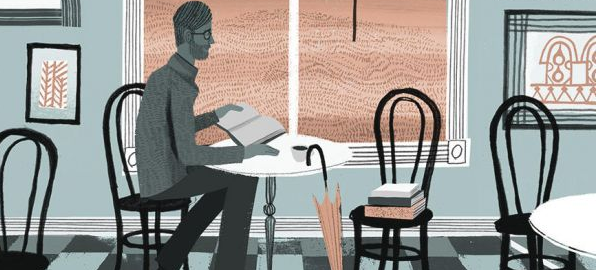Lauren Horn Griffin is 4Humanities.org’s new International Correspondent! She will write on humanities advocacy projects, humanities issues, the relation of the humanities to society, and specific humanities initiatives. Lauren is currently working as the Communications Coordinator for the nonprofit Institute for Diversity and City Life while she finishes her Ph.D., and she is a passionate advocate for the humanities. I caught up with her in Santa Barbara for a chat over coffee to see why the humanities are important to her.
Voices For the Humanities
Alan Wildeman on Ignoring the Liberal Arts
The President of the University of Windsor, Alan Wildeman, has contributed a piece to the Globe and Mail titled “We Ignore the Liberal Arts at Our Peril.” In it he argues for the humanities and social sciences.
The exhilaration of the Age of Enlightenment of the 17th and 18th centuries has been replaced by the nervousness of what appears to be an Age of Justification in the 21st century. Moderm society’s love of innovative gadgets and apps, pronouncements that youth can now be taught on the Internet (and possibly become high-profile entrepreneurs to boot), and social media outpourings that give falsehoods as much airplay as truths, have created a cocktail of rhetoric for critics who are sure that a liberal arts degree is a worthless investment.
Wildeman mentions research from the Education and Policy Research Initiative to the effect that humanities and social science students start with earnings of around CAD $40,000 after graduation and are earning close to double that 13 years later. You can read a summary by of the lead researchers, Ross Finnie, in an Ottawa Citizen piece, “How Your Degree Might Influence Your Earning Potential.” Too many people are basing their opinions on the liberal arts based on short-term employment. (Read more…)
Scott Newstok, “The Crafts of Freedom”
« A Humanities, Plain & Simple Post » by Scott Newstok and Chapter16.org
Martin Luther King Jr.’s Mountaintop speech was more than brilliant rhetorical art; it was also the culmination of a lifetime spent in intense and extensive reading.
On April 3, 1968, Martin Luther King Jr. was summoned to the Bishop Mason Temple in Memphis to address the striking sanitation workers and their supporters. King wasn’t scheduled to speak at the rally, but Reverend Ralph Abernathy, sensing the crowd’s disappointment, had persuaded King to come from the Lorraine Hotel to make a few remarks […]
Take a Survey on Perceptions of “Public Humanities” at Your Institution
The Public Humanities Group affiliated with the Consortium of Humanities Centers and Institutes (CHCI) seeks respondents from higher-education institutions for an online survey gauging contemporary perspectives about the “public humanities.” The questionnaire (designed to take between 10 and 15 minutes to complete) inquires into how important the public humanities are at various institutions; what kinds of activities faculty members think contribute to the public humanities; the percentage of time that educators spend on such activities; and the impact educators believe various public humanities activities and media outlets to have. (More) (Take the survey)

THE DANCE INITIATIVE: An NY6 Fellow Blog
NY6 Think Tank Fellow, Danielle Iwata, from Colgate University launches her Blog. This blog will feature profiles of students, professors, and alumni who have been involved with dance in an effort to encourage others to consider dance in a more serious light. It will also display photographs and videos from my work with the Colgate Dance Initiative, which aim to showcase the talent and passion of students on campus, with the hopes that we can garner a greater appreciation for our art.

Finding Philosophy
In the spring of 2000, I was finishing my Ph.D. in philosophy at Emory University. The obvious path was to drift into a full-time position at a decent institution, work my dissertation into a book, zero in on a specialty, publish some articles and reviews, and lick the necessary wingtips to get tenure. But something kept me from taking such a path seriously.
The Maker Movement and the Humanities: Giving Students A Larger Toolbox
The empowering rise of the do-it-yourself Maker Movement has found fertile ground in higher education, cultivating a vibrant community who believe in the effectiveness of learning through doing, sharing and mentoring, playing, exploring, and risk-taking.